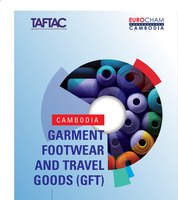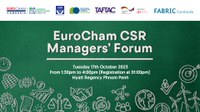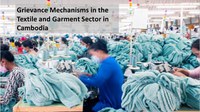Contributions Overview
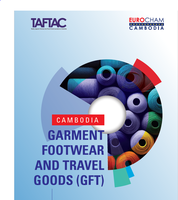
Cambodia Garment, Footwear and Travel Goods Sector Brief Issue No. 2
This Sector Brief provides insights into the current state of the Garment, Footwear, and Travel Goods (GFT) sector in Cambodia, based on publicly available and official statistics. It focuses on the performance and trends observed in the sector, specifically examining the first four months of 2023 (M4 2023).

Training Program on "Due Diligence"
The Responsible Business Hub (RBH) with the support from the GIZ FABRIC Cambodia in partnership with Cambodian Garment Training Institute (CGTI), will conduct 2 days training on “Due Diligence”.

We are delighted to announce the first edition of the CSR Garment Awards, hosted by EuroCham and the Textile, Apparel, Footwear & Travel Goods Association in Cambodia (TAFTAC) and organized by the Responsible Business Hub. This ground-breaking event was possible thanks to the essential contribution of the GIZ FABRIC Cambodia project.
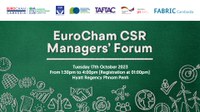
We are delighted to announce the first edition of the CSR Garment Awards, hosted by EuroCham and organized by the Responsible Business Hub and the Textile, Apparel, Footwear & Travel Goods Association in Cambodia (TAFTAC). This ground-breaking event was possible thanks to the essential contribution of the GIZ FABRIC Cambodia project.

Breaking Barriers: People with Disabilities in the Garment Sector
Eurocham's Responsible Business Hub (RBH) and CARE, with the support of GIZ FABRIC, are delighted to announce the forthcoming breakfast talk about empowering people with disabilities (PwD) in the garment sector.
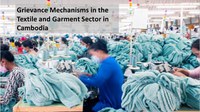
Grievance Mechanisms in the Textile and Garment Sector in Cambodia
Grievance mechanisms play a crucial role in improving working conditions in the garment and footwear industry.
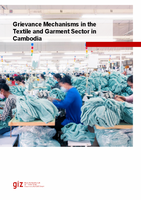
Grievance Mechanisms in the Textile and Garment Sector in Cambodia
Grievance mechanisms play a crucial role in improving working conditions in the garment and footwear industry.
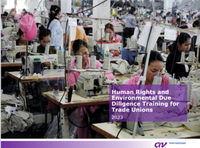
The Role of Trade Unions in Human Rights and Environmental Due Diligence (HREDD)
Upcoming EU legislation on Human Rights and Environmental Due Diligence (HREDD) will not only be important for companies in the European Union. But, it will have a direct impact on workers in production countries upstream in the supply chain.

